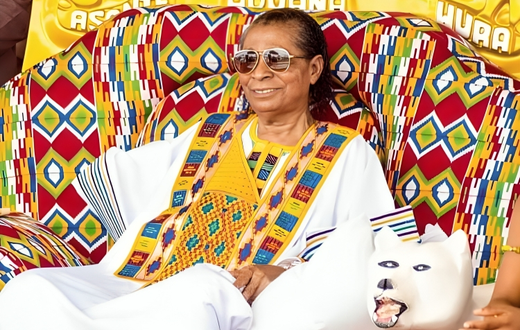Known as the “Star of Africa,” Apostle Dr. Kwadwo Safo Kantanka’s legacy stands as a powerful blend of innovation, faith, and persistent belief in African ingenuity. For decades, he was more than a spiritual leader or a businessman—he symbolized the bold, sometimes controversial vision that Ghana (and indeed the continent) could drive its own progress, with ingenuity and self-reliance at the core.
From launching Ghana’s first indigenous automotive brand to founding an influential church that doubles as a nonprofit and skills centre, his impact resonates with entrepreneurs, inventors, and believers across West Africa. The life story of Apostle Kantanka is a blueprint for how vision can spark a broader legacy, inspiring Ghanaians, Nigerians, and all Africans to take pride in their own innovations.
Early Life & Community Roots
Born on August 26, 1948, in Bom near Kensere (present-day Amansie East, Ashanti Region, Ghana), Kwadwo Safo Kantanka was raised in Bekwai by Opanin Yaw Safo and Obaapanin Yaa Amoanimaa. His upbringing was rooted in modest means but rich in community spirit and cultural tradition.
As a child, Safo developed a reputation for curiosity, technical skill, and spiritual conviction. Operating in rural Ghana, he learned how faith and practical knowledge could complement each other—an approach that shaped his adulthood as both a spiritual leader and a problem-solver committed to local empowerment.
The Spiritual Journey: Rise of Kristo Asafo Mission
In the early 1970s, a pivotal spiritual experience led Safo to establish the Kristo Asafo Mission of Ghana, also branded as the Christ Reformed Church. This initial fellowship was modest but quickly grew into one of Ghana’s most vibrant indigenous churches, carving its own niche in the faith landscape.
Particularly notable was the way Kristo Asafo wove together faith with economic and social practices. Under Apostle Safo’s vision, parishioners weren’t only encouraged to pray but to acquire trades, engage in agriculture, and develop technical skills—a holistic approach that appealed to many Nigerians and West Africans interested in practical faith-based models.
The church distinguished itself by combining spirituality with action: supporting orphans, hospital and prison outreach, and grassroots development. For Apostle Safo, Christianity meant not only spiritual fulfillment but also a duty to empower people for self-sufficiency—a philosophy that aligns with many pan-African ideals.
Championing African Industry: Birth of Kantanka Automobile

Taking his vision beyond the pulpit, Apostle Safo set out in the 1990s to disrupt Ghana’s (and by extension West Africa’s) dependence on imported vehicles. He founded Kantanka Automobile—a company bold enough to build cars designed for the African environment and sensibilities.
Kantanka’s cars, including models like Omama and Onantefo, range from SUVs to pickups and saloon vehicles. These products became the highlight of annual Kristo Asafo Technology Exhibitions, a spectacle showcasing not just vehicles but also homegrown attempts at aircraft, tractors, and cutting-edge tools.
Questions have been raised over the years about the localisation of manufacturing—whether the vehicles are entirely built in Ghana, or partially assembled from imported components. Regardless, the Kantanka brand quickly became a national point of pride, keeping the debate about African industrial self-reliance alive. Industry experts in Nigeria and Ghana often cite the brand as a case study in local automotive ambition and the complex journey toward technology independence in West Africa.
Innovation, Demonstrations & Public Perceptions
Apostle Safo was well-known for pushing boundaries, sometimes blurring lines between spiritual inspiration and technical showmanship. The public displays at technology exhibitions—featuring functioning vehicles, agricultural tools, and military prototypes—sparked attention in the media. Critics have at times challenged the scientific credibility of his claims, while others maintain that these projects illustrate the creative energy present in local communities and should be nurtured.
For many, these displays weren’t just about science; they were about illustrating what self-belief and resourcefulness could achieve in Africa. By keeping homegrown solutions in the national discourse, Safo influenced young innovators and fostered vital conversations about reducing reliance on imported consumer goods—in Ghana, Nigeria, and beyond.
Community Upliftment: Philanthropy and Impact
Charity work was a pillar in Apostle Safo’s life. Under the Kristo Asafo Mission, he initiated outreach in underserved communities—providing food, housing, and sometimes direct financial support. The Mission financed schools and vocational training centres, with a particular focus on skills that could generate employment and strengthen food security. His philosophy—that combining faith with practical training brings lasting change—has been echoed by Nigerian and Ghanaian social impact experts.
Accolades: National & International Recognition
Throughout his career, Safo was honoured for his creativity and contributions to society. He consistently appeared at national ceremonies and even international forums, celebrated for promoting African industry and for challenging conventional thinking in Ghana’s emerging automotive sector. Many locals and experts describe his achievements as a testament to what’s possible when traditional beliefs are matched with a drive for invention.
Controversies and Mixed Opinions
Innovators often divide opinion, and Apostle Safo was no exception. Detractors—both local and foreign—sometimes questioned to what extent his inventions were completely original, particularly in the area of vehicle assembly and advanced prototypes. Despite these debates, his efforts have spurred broader public engagement on the urgent need for local technology capacity in Ghana, Nigeria, and across the continent.
For many in West Africa, Safo’s story is less about perfection and more about the importance of daring to try. He remains a symbol of African aspiration—a figure whose resilience has encouraged others to build, question, and innovate on African soil.
Passing and Enduring Legacy
According to announcements from his family and the Kristo Asafo Church, Apostle Dr. Kwadwo Safo Kantanka reportedly passed away peacefully on September 11, 2025. His departure marked a major transition for both the religious and industrial landscapes in Ghana. Across the country and the region, tributes highlighted not just his role as a pastor, but also as a philanthropist and industry pioneer. (Note: For the most up-to-date information, readers should consult credible news outlets and official church statements.)
Kantanka’s legacy remains multi-layered: spiritual leadership through a uniquely African church, the bold pursuit of technological self-sufficiency, and deep personal investment in social welfare. In Nigeria, Ghana, and across Africa, his example continues to fuel conversations about what local ingenuity and dedicated service can achieve, even against the odds.
How do you see the future of African innovation and entrepreneurship, especially as local industries like Kantanka’s grow? Would Nigerian automakers and inventors benefit from similar models of merging technology, faith, and philanthropy? Share your perspective in the comments below and let’s keep this important conversation going throughout West Africa and beyond.
Have a news story, tip, or inspiring journey you want to share with the Nowahalazone community? We want to hear your voice! Reach out to us at story@nowahalazone.com if you’d like your story featured or are interested in selling your story. For general support and questions, contact us via support@nowahalazone.com.
Join our community conversation! Follow us on
Facebook,
X (Twitter), and
Instagram
for the latest updates, stories, and reactions from across Africa.
Let us know what you think—drop a comment, share this article, or send your own insights about technology, faith, and entrepreneurship in Africa!










